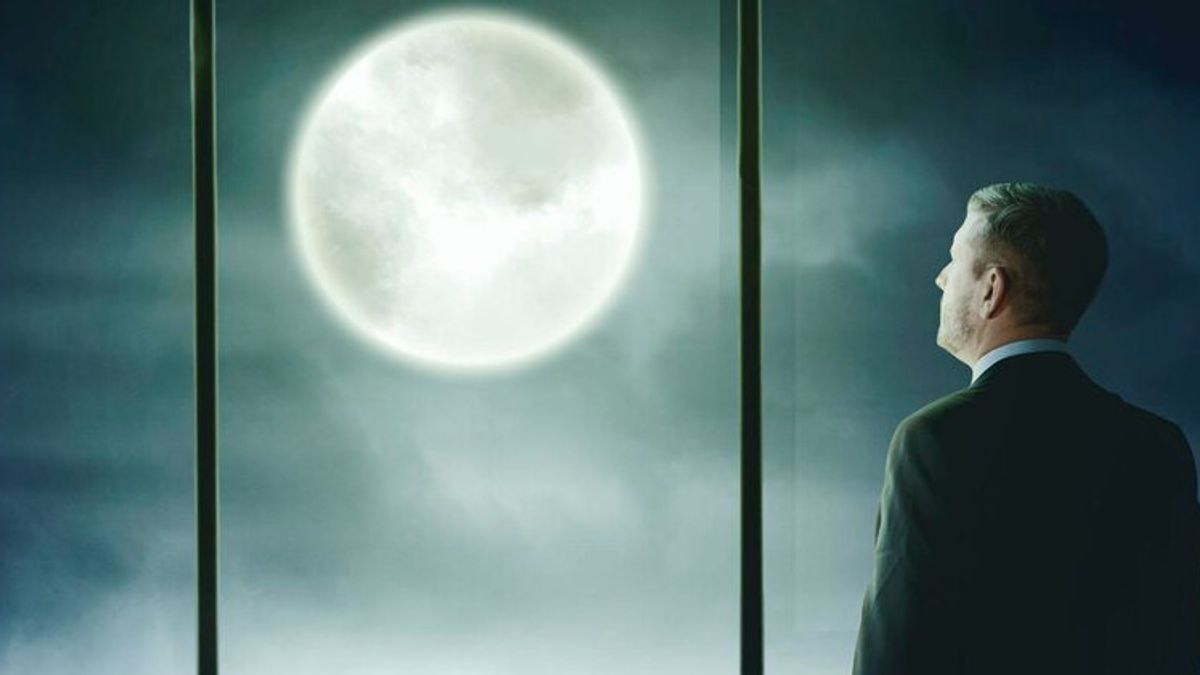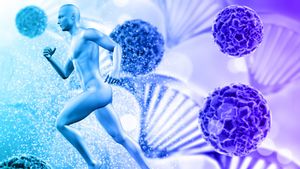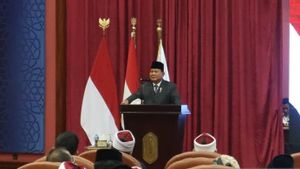YOGYAKARTA Astronomy has a big role in science. Including creating general trust about the full moon. The full moon, if you look at it, is widely believed to affect the mood. But what about science? Apparently, the full moon also affects many things, including circadiant rhythm and heart health.
Nearly 81 percent of mental health experts believe that the full moon can make people sick, reported by Healthline, Wednesday, June 19. Even so, few sciences support the theory that the full moon causes a rapid increase in the number of visits to emergency rooms or patient admissions at unique mental health.
For centuries, doctors and philosophers blamed the change in behavior due to the change in the position of the moon. British famous legal expert William Blackstone for example. He wrote that humans acquire and lose the ability to think according to the phase of the moon shift.
In the 1970s, psychiatrist Arnold Lieber theorized that the moon affects the body's biological waves'' and changes human behavior, causing an increase in the number of violence and murder. In addition, tides rise and fall in line with the lunar phase, and several marine species, including corals, marine-inhabiting worms, and some fish, have a reproductive cycle that coincides roughly with the lunar cycle.
Interestingly, a 2021 study found that people are sleeping more late and lack of sleep on the night before the full moon. Other research also shows that the full moon may be related to lack of sleep and increased dependence of REM (rapid eye movement).
It's important to know that latency sleep is the period between when you first fall asleep until when you enter the first stage of REM sleep. So, increasing latency means it takes longer to achieve REM sleep. Another cause of REM's sleep latency, including sleep apnea, alcohol use, and some drugs. The most sound sleep, occurs just before REM sleep starts. For women and men, it will be different.
Another study, 2015 against 205 people found that the full moon can affect sleep differently in men and women. Many women sleep less and experience less REM sleep when the full moon phase is near. While in men, experience more REM sleep ahead of the full moon.
In 2016, a group of researchers researched children's sleep cycles in 12 countries. They found that children slept 1 percent less during the full moon phase. However, they did not find any connection between these sleep patterns changes and significant behavioral differences during that period.
The three studies above are different from 2015 research findings involving 2,125 people. This research did not find a connection between the full moon and a change in sleep patterns.
SEE ALSO:
The link between the cirkadian rhythm and the full moon occurs when the human body adapts to exposure to the sun and darkness for thousands of years. This causes the development of circadiant rhythms that affect many body systems. This means that light from sunlight and the moon does not only affect the cycle of wake-to-sleep. But also physical and mental health. When the rhythm of circadiant is not balanced, it causes an increase in symptoms of certain mental health disorders. These include anxiety, bipolar disorder, depression, andappropriation.
Although two studies did not find a connection between the full moon and the mental condition during the four full moon phases. But the full moon may affect people with bipolar disorder. In particular, a 2018 study examined 17 people whose bipolar disorders tended to change rapidly from depression to mania.
In a 2013 study of male students, researchers measured the effects of changing the lunar cycle on the participant cardiovascular system. They found that blood pressure fell by about 5 mmHg during the new moon and full moon phases. The students also took a step test. Their heart rate and blood pressure were lower during the full moon and the new moon. Plus, their heart rate returned to normal levels faster during the full moon and the new moon. In the study, the researchers concluded that humans were more physically efficient during the full moon and the new moon.
Those are a number of studies and findings that turn out to be full moons related to various human conditions, including physical, biological, and mental conditions.
The English, Chinese, Japanese, Arabic, and French versions are automatically generated by the AI. So there may still be inaccuracies in translating, please always see Indonesian as our main language. (system supported by DigitalSiber.id)
















